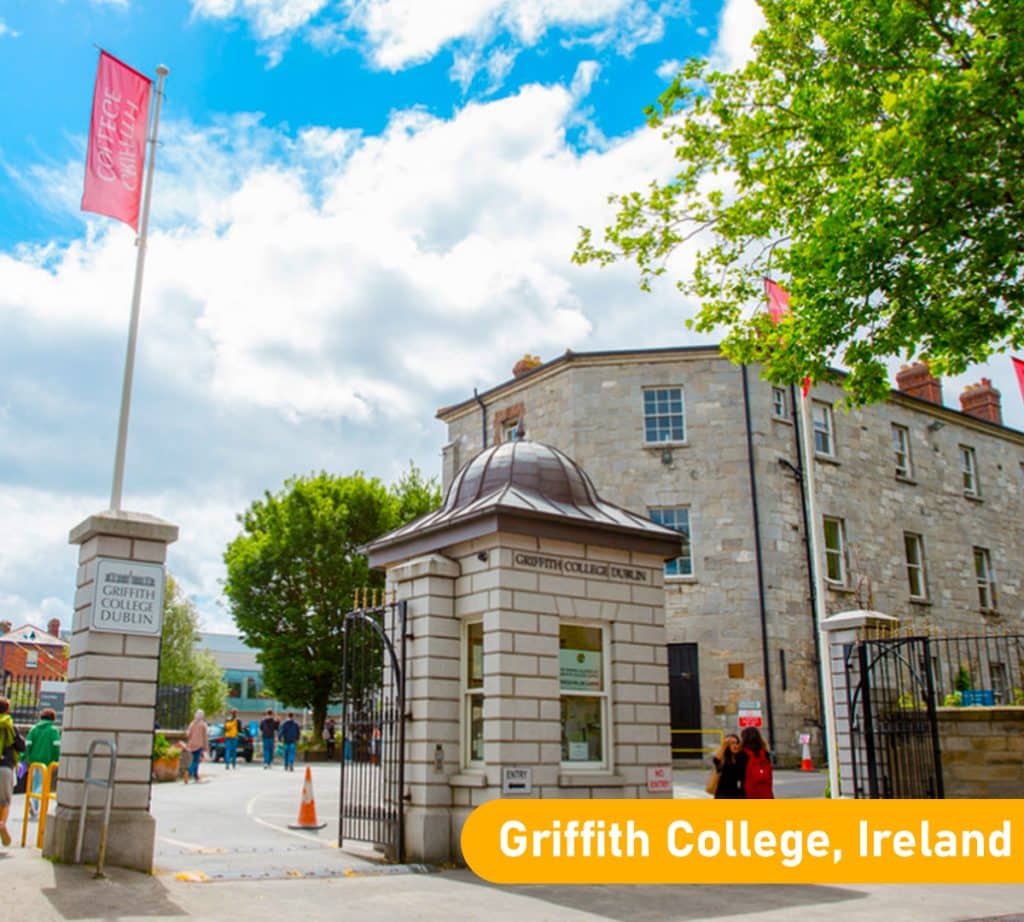Study In Ireland
Ireland is one of the most popular study abroad destinations in Europe. Its universities offer first-rate education in a traditional, yet modern setting. Thousands of study programmes at over two dozen schools attract international students from around the world. Ireland is a welcoming island with cosmopolitan cities and a strong history related to literature. The Irish government is committed to supporting students and will invest 11.1 billion EUR in education in 2020. To attract international students, hundreds of scholarship and funding programmes are available.
If you fancy the idea of studying abroad in Ireland, you should first know how much money you’ll need. To make things easier, we’ve done the research for you. Keep on reading as we’ll offer more details about tuition fees and living costs for international students in Ireland.
University tuition fees in Ireland
Tuition fees for EU/EEA students
In Ireland, undergraduate (Bachelor’s) degrees are free for citizens from Ireland, EU/EEA countries, and Switzerland. The costs are covered by the Higher Education Authority (HEA).
Keep in mind that not all undergraduate courses offered by public universities are free. Always check the official study programme page to see what tuition fees apply to students from your country.
To benefit from the “free fees initiative”, you have to apply for the government funding programme and prove that you are eligible. You are not eligible if:

- You already have an undergraduate degree
- You already have a postgraduate degree
- You are repeating a year of study
Nationality, immigration status, residence and course requirements are other criteria that can qualify you for a tuition-free university degree.
For postgraduate (Master’s and PhD) studies, EU/EEA students should expect to pay tuition fees that range between 3,000 – 30,000 EUR/academic year. Business and Medicine courses are usually the most expensive.
Tuition fees for non-EU/EEA students
- Undergraduate courses: 9,850 – 55,000 EUR/year
- Postgraduate Master’s and PhD courses: 9,950 – 35,000 EUR/year
All international students (both EU/EEA and non-EU/EEA citizens) have to pay a student contribution fee of maximum 3,000 EUR/year for student services, like examination entries and support for clubs and societies. The fee varies from one university to another, and it can change every year.
Note that at these universities, non-EU/EEA students usually have to pay tuition fees that are twice as high as those for EU/EEA citizens.
Take your future into your hands and apply to study abroad today
Ireland Student Visa
Ireland is an EU member state, but it’s not within the border control-free Schengen Zone. This doesn’t affect nationals of the EU, the EEA, Switzerland or the UK, who can freely move there, but it does affect those from outside these countries. A Schengen visa isn’t valid in Ireland. You’ll need an Irish study visa if you want to study in Ireland. But Ireland doesn’t make it difficult to get one of these. In fact, they make it about as simple as possible for Americans and Canadians. First and foremost, your course must last for at least three months, otherwise you’re classed as a tourist.
Ireland removes a lot of the complications and bureaucracy as, for the most part, the process is handled entirely online.
You should apply for your study visa three months before you plan to arrive in Ireland when you want to study in Ireland. First of all, comb through the list of documentation. Gather together documentation proving your identity, educational background, English ability (if you’re not from an Anglophone country), employment history and evidence accounting for any gaps in your education, like gap years, etc. One key requirement is that you provide evidence that you have paid at least €6000 (US$7100) in tuition fees before applying. If your course fees are less than €6000, then you must have paid the full amount.
You’ll also need to prove that you will be financially self-sufficient throughout your studies.
Student living costs in Ireland
If you want to study in Ireland, you should know that the costs of living in Ireland are a bit higher than the average for the European area; you should expect to spend anywhere between 550 – 1,000 EUR/month.
Average costs of living in Irish cities (including accommodation costs):
- Dublin: 1,100 – 1,800 EUR/month
- Cork: 860 – 1,400 EUR/month
Galway and other smaller cities: 800 – 1,100 EUR/month


Accommodation costs for students in Ireland
Higher education institutions offer accommodation in student residence halls, which usually costs above the European average of 200 – 300 EUR. It is often difficult to find a place because the number of places is limited, and the demand is high.
Apart from residence halls, you can rent/share an apartment or choose to live with an Irish family if you want to study in Ireland.
The average accommodation prices for students who wants to study in Ireland are:
- Student living alone: 400 – 900 EUR/month
- Student living with partner/colleagues: 450 – 550 EUR/month
- Student living on campus: 300 – 650 EUR/month
Other costs associated with accommodation:
- Utilities: around 30 – 50 EUR/month
Internet: up to 60 EUR/month
Food costs
Average monthly food costs are not high. You’ll spend around 250 – 350 EUR/month for grocery shopping. If you study in Ireland, you can find cheaper food products in supermarkets. You can also dine in a small restaurant and pay 15 EUR or enjoy a three-course meal for two in a mid-range restaurant for 55 EUR.
Transportation costs
Students can benefit from discounts for transportation if they use the Student Leap Card or the Bus Éireann services to travel around the country. Around 27% of the students use public transport in Ireland, and a monthly pass with a special discount for students is around 50 – 55 EUR/month.
The most popular mode of transportation is the bicycle, chosen by 38% of the students. You can rent a bicycle to get around the city for around 20 EUR/day.
Extra costs
Other expenses you need to cover during your study:
- Books and other study materials: 75 EUR/month
- Social activities/entertainment: 60 – 100 EUR/month
Medical insurance: 45 EUR/month


